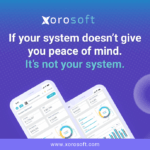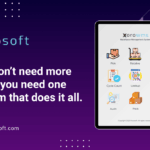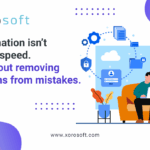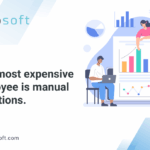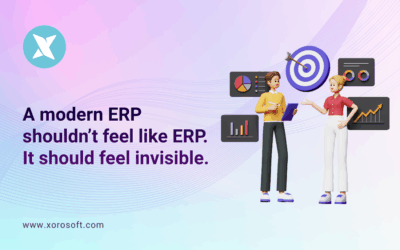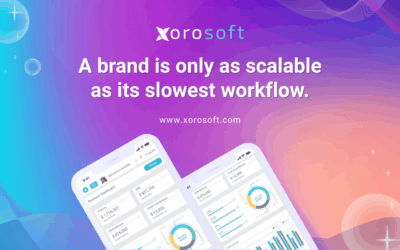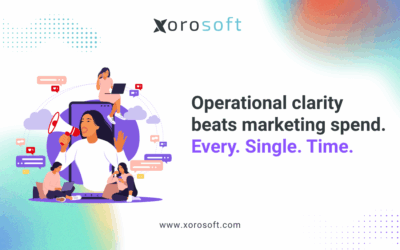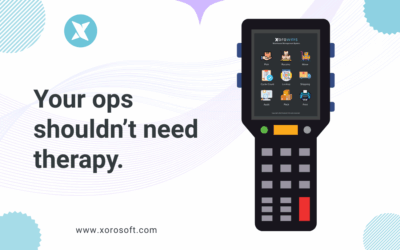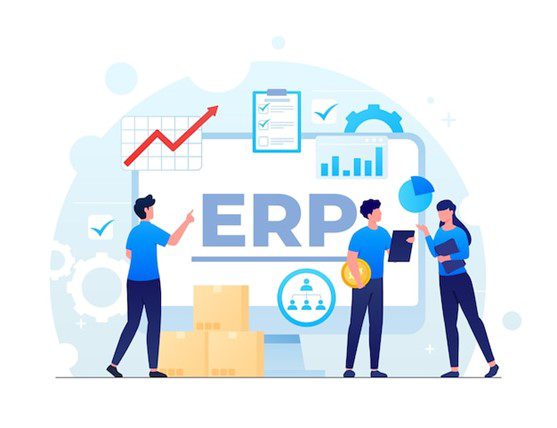
Introduction to ERP Systems
In today’s fast-paced and competitive business environment, it is crucial for companies to have efficient and streamlined operations. This is where Enterprise Resource Planning (ERP) systems come into play. ERP systems are comprehensive software solutions that integrate various business functions into a single platform, enabling companies to manage their resources, processes, and data more effectively.
What is XoroERP and its Key Features?
XoroERP is a leading ERP solution developed by Xorosoft, a renowned software company specializing in business management solutions. XoroERP offers a wide range of features and modules designed to streamline and automate key business processes. Some of its key features include:
1. Inventory Management System: XoroERP provides a robust inventory management system that allows businesses to track and manage their inventory in real-time. With features such as automated stock replenishment, barcode scanning, and demand forecasting, XoroERP helps businesses optimize their inventory levels, reduce stockouts, and improve order fulfillment.
2. Accounting: XoroERP’s accounting module provides businesses with a complete financial management solution. From general ledger and accounts payable/receivable to financial reporting and tax management, XoroERP ensures accurate and up-to-date financial information, enabling businesses to make informed decisions and comply with regulatory requirements.
Benefits of Implementing an ERP System
Implementing an ERP system like XoroERP can bring a multitude of benefits to businesses of all sizes and industries. Here are some key advantages:
1. Streamlined Processes: An ERP system centralizes all your business processes, eliminating the need for manual data entry, spreadsheets, and multiple software systems. This leads to increased efficiency, reduced errors, and improved productivity.
2. Enhanced Data Visibility: With XoroERP, you can have a holistic view of your business operations through real-time dashboards and reports. This enables better decision-making, improved collaboration, and faster response to market changes.
3. Improved Customer Service: By having access to accurate and up-to-date customer data, XoroERP enables businesses to provide personalized and responsive customer service. From order tracking to after-sales support, ERP systems facilitate seamless customer interactions.
The Importance of Workflow Automation in ERP Systems
Workflow automation plays a vital role in maximizing the benefits of an ERP system like XoroERP. By automating repetitive tasks and standardizing processes, businesses can achieve greater efficiency, reduce costs, and improve overall productivity. Here’s why workflow automation is crucial:
1. Time and Cost Savings: Manual data entry, approval routing, and document handling can be time-consuming and error-prone. Workflow automation eliminates these manual tasks, saving time and reducing costs associated with human errors.
2. Consistency and Compliance: With workflow automation, businesses can enforce standard operating procedures and ensure compliance with internal policies and regulatory requirements. This reduces the risk of errors, enhances data accuracy, and promotes consistent business practices.
3. Scalability and Flexibility: As businesses grow and evolve, workflow automation allows for easy scaling and adapting to changing needs. Whether it’s onboarding new employees or implementing new processes, XoroERP’s workflow automation capabilities ensure smooth transitions and minimal disruptions.
Streamlining Business Operations with XoroERP
XoroERP is specifically designed to streamline and optimize business operations across various departments. By leveraging its powerful features and functionalities, businesses can achieve operational excellence, improve customer satisfaction, and drive growth. Here’s how XoroERP streamlines key business operations:
1. Streamlined Procurement: XoroERP’s procurement module automates the entire procurement process, from requisitions and purchase orders to vendor management and invoice reconciliation. This eliminates manual paperwork, reduces procurement cycle time, and ensures cost-effective purchasing decisions.
2. Efficient Production Management: XoroERP’s production management module enables businesses to plan, monitor, and control their manufacturing processes. With features such as production scheduling, material requirements planning, and quality control, XoroERP helps optimize production efficiency and minimize waste.
3. Integrated Sales and Customer Relationship Management: XoroERP seamlessly integrates sales and CRM processes, enabling businesses to manage leads, track customer interactions, and streamline the entire sales cycle. This leads to improved customer satisfaction, increased sales revenue, and stronger customer relationships.
Key Functionalities of XoroERP: Inventory Management System and Accounting
XoroERP offers a comprehensive set of functionalities that cover various aspects of business management. Two key functionalities worth highlighting are the Inventory Management System and Accounting module.
Inventory Management System
Managing inventory effectively is crucial for businesses to meet customer demands while minimizing holding costs. XoroERP’s Inventory Management System provides businesses with the tools and capabilities to achieve this. Key features include:
1. Real-time Inventory Tracking: XoroERP allows businesses to track inventory levels in real-time, providing accurate insights into stock availability, location, and movement. This enables businesses to make data-driven decisions, avoid stockouts, and improve order fulfillment.
2. Demand Forecasting: XoroERP’s demand forecasting feature uses historical data, market trends, and predictive analytics to estimate future demand. By accurately forecasting demand, businesses can optimize inventory levels, reduce excess stock, and prevent obsolescence.
3. Automated Replenishment: XoroERP’s automated replenishment feature ensures that stock is replenished at the right time and in the right quantities. By setting automatic reorder points and safety stock levels, businesses can avoid stockouts and prevent overstocking.
Accounting
Accurate financial management is vital for the success of any business. XoroERP’s accounting module provides businesses with a comprehensive set of tools to manage their financial processes efficiently. Key features include:
1. General Ledger: XoroERP’s general ledger feature allows businesses to record and track all financial transactions, ensuring accurate and up-to-date financial reporting. With real-time visibility into financial data, businesses can monitor their financial health and make informed decisions.
2. Accounts Payable/Receivable: XoroERP’s accounts payable/receivable feature automates invoice processing, payment tracking, and reconciliation. This improves cash flow management, reduces manual errors, and enhances vendor and customer relationships.
3. Financial Reporting: XoroERP’s financial reporting feature enables businesses to generate and analyze financial reports, such as balance sheets, income statements, and cash flow statements. Customizable reports and dashboards provide businesses with valuable insights into their financial performance.
How XoroERP Improves Efficiency and Reduces Costs
Implementing XoroERP can significantly improve efficiency and reduce costs for businesses. Here are some ways in which XoroERP achieves these benefits:
1. Elimination of Redundant Processes: XoroERP eliminates redundant processes by automating tasks, standardizing workflows, and centralizing data. This reduces manual errors, minimizes rework, and improves overall process efficiency.
2. Streamlined Collaboration: XoroERP promotes seamless collaboration by providing a centralized platform for employees to access and share information. This eliminates communication gaps, reduces delays, and enhances teamwork.
3. Cost Control: XoroERP’s inventory management and financial modules enable businesses to monitor and control costs effectively. By optimizing inventory levels, reducing stockouts, and improving cash flow management, XoroERP helps businesses reduce unnecessary expenses and increase profitability.
Choosing the Right ERP Solution for Your Business
When it comes to choosing an ERP solution for your business, it is essential to consider your specific requirements, industry needs, and budget. Here are some key factors to consider:
1. Scalability: Ensure that the ERP solution can scale with your business as it grows and adapts to changing needs.
2. Customization: Look for an ERP solution that can be customized to meet your unique business processes and requirements.
3. Integration Capabilities: Consider the ERP solution’s ability to integrate with other business software and systems, such as CRM and e-commerce platforms.
4. Vendor Support and Reputation: Choose a reputable ERP vendor that offers excellent customer support, regular updates, and a proven track record of successful implementations.
Implementing XoroERP: Best Practices and Considerations
Implementing XoroERP requires careful planning and execution to ensure a successful deployment. Here are some best practices and considerations to keep in mind:
1. Define Clear Objectives: Clearly define your business objectives and key performance indicators (KPIs) to align the implementation process with your strategic goals.
2. Involve Key Stakeholders: Involve key stakeholders from different departments in the implementation process to ensure their buy-in and collaboration.
3. Training and Change Management: Provide comprehensive training to employees on how to use XoroERP effectively. Implement change management strategies to address any resistance or concerns.
4. Data Migration and Integration: Plan and execute a smooth data migration process to ensure that all your existing data is transferred accurately to XoroERP. Consider the integration requirements with other systems to ensure seamless data flow.
Integrating XoroERP with Other Business Software
XoroERP’s integration capabilities allow businesses to connect with other business software and systems, enabling a seamless flow of data and information. Some key integrations to consider include:
1. CRM Integration: Integrating XoroERP with your CRM system allows for a unified view of customer data, enabling better customer relationship management and personalized marketing strategies.
2. E-commerce Integration: By integrating XoroERP with your e-commerce platform, you can synchronize inventory levels, automate order processing, and provide real-time order tracking to customers.
3. Business Intelligence Integration: Integrating XoroERP with business intelligence tools allows for advanced data analysis, reporting, and predictive analytics, enabling businesses to gain deeper insights into their operations and make data-driven decisions.
The Future of ERP Systems and XoroERP’s Roadmap
The future of ERP systems is marked by advancements in cloud computing, artificial intelligence, and machine learning. As businesses continue to embrace digital transformation, ERP systems like XoroERP will evolve to meet the changing needs and demands of the market. Xorosoft, the developer of XoroERP, is committed to continuous innovation and improvement. Their roadmap includes enhanced mobile capabilities, deeper integration with emerging technologies, and further automation of business processes.
Conclusion: Unlocking the Full Potential of Your Business with XoroERP
In conclusion, implementing an ERP system like XoroERP can revolutionize your business operations, drive efficiency, and unlock your full potential. With its comprehensive features, workflow automation capabilities, and seamless integration, XoroERP empowers businesses to streamline processes, improve financial management, and enhance overall productivity. To experience the power of XoroERP firsthand, book a demo with Xorosoft today and take the first step towards transforming your business into a well-oiled machine.
